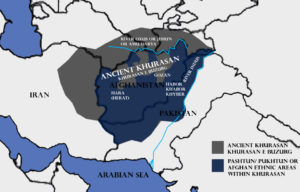ISIS Spreads Across South Asia, Threatens India
 Early in August, a suicide bombing at a hospital in Quetta, the capital of Pakistan’s Baluchistan Province, killed at least 70 lawyers, journalists, and other civilians. The attack marked the latest in a series of increasingly frequent and deadly killings claimed by the Islamic State (ISIS) in South Asia during the summer.
Early in August, a suicide bombing at a hospital in Quetta, the capital of Pakistan’s Baluchistan Province, killed at least 70 lawyers, journalists, and other civilians. The attack marked the latest in a series of increasingly frequent and deadly killings claimed by the Islamic State (ISIS) in South Asia during the summer.
According to BBC News, ISIS formally announced its presence in the region when it declared its control over Khorasan, an area that encompasses parts of Afghanistan and Pakistan, in January 2015. Since then, ISIS militants have carried out several attacks in eastern Afghanistan, including the capital city of Kabul.
According to BBC News, a June 5 explosion took the lives of at least four individuals, including Afghan Minister of Parliament Sher Wali Wardak. CNN confirmed that ISIS had claimed the attack. The group also acknowledged responsibility for a June 20 suicide attack that targeted a bus and killed 16 individuals. Most recently, The New York Times reported that a bombing in Kabul on July 23 had killed at least 80 individuals, and that ISIS had specifically targeted members of the Hazara ethnic minority.
ISIS militants’ actions in South Asia have not been limited to Afghanistan. The New York Times and Al Jazeera reported that on July 1, Islamic State militants killed 22 individuals, including 18 foreigners, in a brutal attack on a restaurant in Dhaka, Bangladesh’s capital city. As part of the attack, ISIS also took 20 hostages in a siege that lasted 11 hours. The attack followed at least two other apparently religiously-motivated killings that ISIS claimed in June. The first targeted a member of one of Bangladesh’s oldest Christian communities, while the second claimed the life of a Hindu priest.
ISIS’ operations in Pakistan, Afghanistan, and Bangladesh carry implications for the possibility of its expansion to India. Both The Independent and The National Interest reported on a video that ISIS released earlier this year. The video announces the group’s intentions to retaliate against violence directed at Muslims in Gujarat’s 2002 riots and in the conflict-ridden state of Kashmir.
Moreover, the chief of ISIS operations in Bangladesh has confirmed the group’s plans to target India in an interview conducted with ISIS’ online magazine, Dabiq, in April. He stated that ISIS seeks to sow fear and strengthen its operations in both Bangladesh and Iran’s Khorasan region to facilitate the establishment of control over Indian territory. Though the likelihood of achieving this goal remains contested, such an objective serves as a reminder of ISIS’ growing influence within the region.
